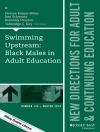This edited volume provides theoretical and practical resources relating to the ‘STEPWISE’ curricular and instructional framework. ‘STEPWISE’ is the acronym for Science & Technology Education Promoting Wellbeing for Individuals, Societies & Environments. It is a framework for organizing teaching and learning domains in ways that prioritize personal and social actions to address ‘critical socioscientific issues’ — that is, controversial decisions by powerful individuals/groups about science and technology (and related fields) that may adversely affect individuals, societies and/or environments. The book contains chapters written by and/or with teachers who have used STEPWISE to guide their instructional practices, as well as chapters written by education scholars who have used a range of theoretical lenses to analyze and evaluate STEPWISE — and, in several cases, described ways in which it relates to (or could relate to) their practices and/or ways in which the framework might logically be amended. Overall, this book offers educators, policy makers and others with resources useful for arranging science and technology education in ways that may assist societies in addressing significant potential personal, social and/or environmental problems — such as dramatic climate change, preventable human diseases, species losses, and social injustices — associated with fields of science and technology.
Jadual kandungan
Part I. PREAMBLE.- 1 FOREWORD: The Significance of STEPWISE for Fostering Life-long Sociopolitical Activism, Derek Hodson.- 2 INTRODUCTION: STEPWISE — A Framework Prioritizing Altruistic Actions to Address Socioscientific Issues, Larry Bencze.- Part II. DOCUMENTARIES.- 3 School Science Ruling Relations and Resistance to Activism in Early Secondary School Science, Darren Hoeg, Tanya Williamson & Larry Bencze.- 4 Activating Students’ Conceptions and Positions on STSE Issues in Preparation for Socio-political Activism, Varsha Patel.- 5 Both Sides Now: Exploring the Art of Persuasion to Enhance Actions Within a STEPWISE Framework, Angeliki Grundy.- 6 Learning about Youth Engagement in Research-informed and Negotiated Actions on Socio-scientific Issues, Mirjan Krstovic.- 7 Students’ Social Studies Influences on Their Socioscientific Actions, Larry Bencze and Mirjan Krstovic.- 8 Epistemic Contributions to Students’ Autonomous Socioscientific Actions, Larry Bencze and Mirjan Krstovic.- 9Students’ Uses of Actor Network Theory to Contextualize Socioscientific Actions, Larry Bencze and Mirjan Krstovic.- 10 Science Students’ Ethical Technology Designs as Solutions to Socio-scientific Problems, Larry Bencze and Mirjan Krstovic.- 11 Resisting the Borg: Science Teaching for Common Wellbeing, Larry Bencze and Mirjan Krstovic.- 12 Giving Meaning to STSE Issues Through Student-Led Action Research: An Actor-Network Theory Account of STEPWISE in Action, Neil T. Ramjewan, Brandon Zoras and Larry Bencze.- 13 Students’ Socioscientific Actions: Using And Gaining ‘Street Smarts’, Christina Phillips-Mac Neil, Mirjan Krstovic and Larry Bencze.- 14 Tensions on Promoting Social Justice Through STEPWISE Pedagogies in an International Baccalaureate Preparatory Class, Neil T. Ramjewan, Brandon Zoras and Larry Bencze.- 15 ‘In The Eye of The Hurricane’: Using STEPWISE to Address Urgent Socio-Political Issues in Venezuela, Majd Zouda, Tomo Nishizawa and Larry Bencze.- 16 Science for Citizenship:Using Prezi™ for Education about Critical Socio-scientific Issues, Darren Hoeg, Alexander Di Giacomo, Sarah El Halwany, Mirjan Kirstovic, Christina Philips-Mc Neil, Minja Milanovic, Tomo Nishizawa, Majd Zouda and Larry Bencze.- 17 Battle of the Bands: Toxic Dust, Active Citizenship and Science Education, Larry Bencze and Chantal Pouliot.- 18 Supporting Pre-service Teachers to Teach for Citizenship in the Context of STSE Issues, Sarah El Halwany, Majd Zouda, Chantal Pouliot and Larry Bencze.- 19 Teaching Girls to Fish?: A Case of Co-curricular Food Justice Education Program for Youth, Erin Sperling and Larry Bencze.- Part III. COMMENTARIES.- 20 Actor Network Theory and STEPWISE: A Case Study on Learning About Food Justice with Plants, Clayton Pierce.- 21 Rebuilding Community Spaces: Integrating Resilience into STEPWISE, Cassie Quigley.- 22 Socio-scientific Issue-based Learning: Taking Off From STEPWISE, Ralph Levinson and The PARRISE Consortium.- 23 “Preach or teach?”: An Ongoing Journeyto Becoming STEPWISE, Mellita Jones.- 24 “I had to take action straight away.” Preservice Teachers’ Accounts of Pro-environmental Action, Lyn Carter and Jenny Martin.- 25 Science Education for a Better World? Reflections on Embodiment, Language and Sensitive Action, Laura Colucci-Gray.- 26 WISE Preservice Teachers Discussing Social and Economic Disparities During a Discussion Game Dealing with Nanotechnologies, Audrey Groleau and Chantal Pouliot.- 27 STEPWISE as a Vehicle for Scientific and Political Educ-action? Laurence Simonneaux and Jean Simonneaux.- 28 Understanding Opportunities and Contradictions in the Grammars of Activism and Schooling, Matthew Weinstein.- 29 In Which Ways Can (Science) Education Promote the Well-being of Individuals, Societies and Environments? Isabel Martins.- 30 ‘STEPPING’ Toward a Critical-activist Science Education: Dialoguing Subjectivity, Social Ontology and Multiplicities, Jessie Bazzul and Shakhnoza Kayumova.- 31 Countering the Neoliberal Ontology of Nature: The STEPWISE Option, Ajay Sharma.- 32 STEPWISE: A Societal-historical Activity (Activism) Theoretical Perspective, Wolff-Michael Roth.- Part IV. AFTERWORD.- 33 Critical and Activist Science Education: Envisaging an Ecojust Future, Larry Bencze.- AUTHOR BIOGRAPHIES.- INDEX.












